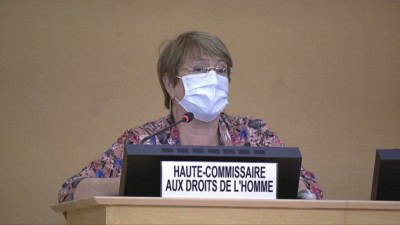Geneva, Dec 10 : “Recover better,” said Michelle Bachelet, the UN High Commissioner for Human Rights, when asked about her wish for 2021.
“I mean, one thing we can do is go back to day zero before Covid-19 started, a world that brought us to where we are today, but we need a world that is better recovered,” she told Xinhua news agency in an interview on Wednesday.
She explained that a world better recovered will be more inclusive, greener and similar to the pre-pandemic world “where everyone has their rights preserved, protected and ensured”.
“We can find the vaccine for Covid-19, but then we may have other diseases and crises. So, I would say, we need to recover better, and not expect to go back to what made the situation we are in now,” Bachelet said.
On the eve of Human Rights Day which is observed every year on December 10, Bachelet on Wednesday held a press conference here on the theme “Reflections on 2020 and looking ahead to 2021”.
“2020 is a year none of us will ever forget. A terrible, devastating year that has scarred so many of us in so many ways,” she said.
According to Bachelet, the vaccines that are being developed will, hopefully, eventually protect people against Covid-19, but they will not prevent or cure the socio-economic ravages that have resulted from the pandemic.
“But there is a vaccine against hunger, poverty, inequality and possibly — if it is taken seriously — climate change, as well as against many of the other ills that face humanity,” she said.
“The name of that vaccine is human rights.”
The failure by many countries to sufficiently invest in universal and primary healthcare has been exposed as being extremely short-sighted, the UN rights chief said, criticizing certain political leaders who play down the impact of the Covid-19 pandemic.
Bachelet also said that she opposed the so-called “herd immunity” strategy, arguing that the loss of hundreds of thousands of lives is a cost that cannot be easily borne for the sake of a greater good.
“The pandemic has left us exposed, vulnerable and weakened. Yet, through its devastation, it has also provided clear insights on how we can turn disaster into an opportunity to reset our priorities and improve our prospects for a better future.
“Even with stretched resources, the main ingredient that we need to build that future is political will,” she added.
Disclaimer: This story is auto-generated from IANS service.

